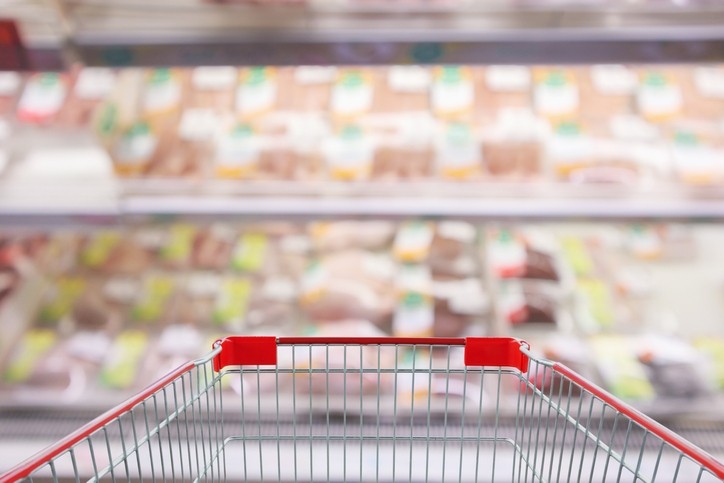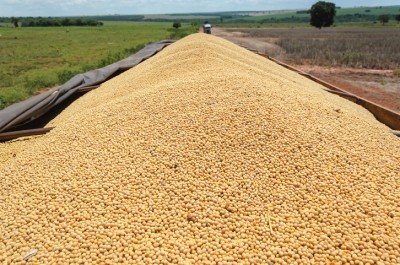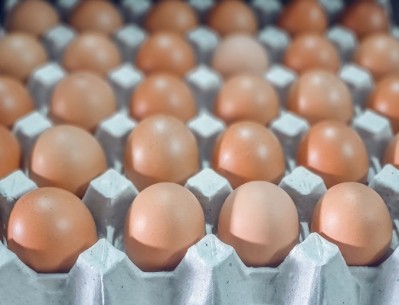French supermarkets fighting soy-driven deforestation

In an announcement to mark two years of the National Strategy to fight Imported Deforestation (Stratégie Nationale de lutte contre la Déforestation Importée, SNDI), the seven food retailers said they are going to include non-deforestation clauses for soy in their suppliers' contractual conditions.
In particular, the supermarkets will demand that their suppliers stop using soy from recently deforested land in the Cerrado, which is the main region in Brazil being deforested for soy production.
The supermarkets' announcement is significant but more action is required, said Klervi Le Guenic, campaign officer, Canopéer: “The supermarkets' manifesto sends a very strong market signal, but to go beyond mere words, this voluntary measure needs to be rapidly transformed into consistent action plans. Lidl, Système U and Auchan have already done this; the others now need to pick up on this positive dynamic. We will publish an analysis of the supermarkets' different commitments soon.”
In September 2020, Canopée published a report [in French] focused on how to put an end to imports of soy that entailed a risk of deforestation.
Sylvain Angerand, co-author of the report, said: “It has become clear that the national strategy to fight imported deforestation has reached an impasse, due to a lack of resources, significant political trade-offs and over-reliance on voluntary commitments… The technical solutions exist, and stakeholders are ready to commit. What is needed now is to build on this dynamic to create a stricter framework for all businesses, particularly those that are subject to the law of due diligence but have not adopted any serious measures whatsoever to fight imported deforestation.”
Etelle Higonnet, senior campaign director, Mighty Earth, said the retailers were moving in the right direction: “French supermarkets are finally listening to their customers' concerns and leading an industry-wide effort to clean up the entire French soy supply chain.”
A fundamental condition for success is that the French government seize these corporate commitments to strengthen the due diligence obligations for all companies, said the environmental campaigners.
France imported a total of 3.7m tons of soybeans, meal, and oil in 2018. Soybean meal accounted for almost 2.9m tons with the largest share coming from Brazil (1.6m tons), according to the IDH European Soy Monitor, published in May 2020.
France also produced 398,000 tons of soybeans domestically that year, as per that data source.
The IDH report showed of the 3,5m tons of soybean meal available for livestock consumption in France in 2018, 43% was compliant with the FEFAC soy souring guidelines (SSGs) while 20% of it was deemed to be deforestation-free.
As part of its 2022 protein crop, France is aiming to replace imported non-GM soy by increasing domestic soy production. In the last 10 years, noted the IDH, French soybean production has increased from 100,000 tons to nearly 400,000 tons.
Due diligence trend
France was one of the first countries to introduce a vigilance law, doing so in 2017, with it requiring companies to take adequate measures to identify both human rights and environmental risks within their supply chains and to prevent violations. While some French companies had taken initial steps to disclose their risk, such as Carrefour, a large number were failing to comply with the law, said activists in 2019, in their report on business adherence with the regulation.
Other markets would appear to be following suit.
In July this year, the German government announced plans to pass a due diligence act, a draft of which is expected in early 2021, and, in August this year, the UK authorities opened a public consultation on a proposal for similar legislative action.
However, MEPs want an EU-wide initiative. Last month, they called for mandatory obligations for EU businesses to halt deforestation related to agri-commodities – the politicians said voluntary initiatives, third-party certification and labels have failed to stop forest destruction.
The MEPs want a new EU legal framework based on mandatory due diligence for companies, meaning they must perform a risk assessment of their products to identify, prevent, mitigate, and account for how they address the issue of deforestation throughout the supply chain.








